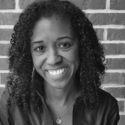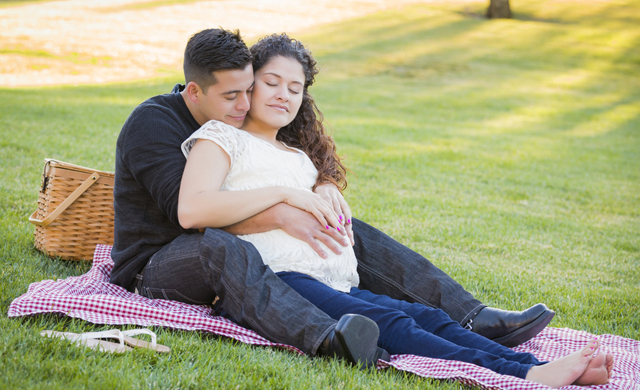
Why More Latinas Are Waiting to Have Babies and What It Really Means
01/29/2016 11:39AM | 9608 viewsSometimes it's harder than you think it will be to have a baby when you're older
When Annette Prieto-Llopis began trying to conceive when she was 27 years old, she couldn’t have imagined the arduous journey that lay ahead. The now-44-year-old recounts two emergency surgeries to treat twisted fallopian tubes and the price that she paid — she was no longer able to conceive naturally. Thus began a 17-year battle with infertility.
Today, young Latinas are pursuing higher education at record rates and are urged to avoid teen pregnancies. The pressure is felt even more so in immigrant homes where a first generation college student strives to make her family proud. Then, the script is flipped and young women are faced with the question: “When are you going to start having children?” Suddenly, a woman is supposed to switch her mentality from avoiding unwanted pregnancies to worrying about her biological clock. So, at what age should a woman start considering her fertility if she hopes to have children someday?
Those questions about getting pregnant aren’t met with an offer to help change diapers, stay up all night, and feed that baby. Gone are the days when multiple generations lived under the same roof, with abuelitas taking care of the grandchildren while the parents worked long hours to put food on the table. People seem to forget that it’s a huge sacrifice and the brunt of that weight often falls on the mother. There’s an unrealistic expectation that if a woman wants to continue working after her pregnancy, she needs to juggle both career and family life flawlessly, which has more women thinking twice before adding a baby to their already hectic lives.
“Overall the demographics in the United States are of women having their first child at a much older age than ever before,” said Barbara Collura, president of Resolve: The National Fertility Association.Collura said. “The reasons are mostly economic – there are more women in the workforce, and with benefits structured the way they are, its harder to work and advance in a career and take time to have children.”
According to the Hispanic Immigration and US Economic Growth study conducted by IHS Economics, the Latina birth rate dropped 25 percent from 2006 to 2013. In comparison, research showed just a 5 percent drop in non-Latinas. The notion that Hispanic women are baby-making machines is quickly becoming an old myth as more and more women are pursuing higher education and better-paying careers. College graduation rates for Latinas have increased faster than any other group of women. So after generations of busting through barriers and finally seeing their goals within their reach, can you blame a woman for being reluctant to let those opportunities slip by?
“I believe that today it has become more accepted to delay or even live child-free amongst our peers,” said Prieto-Llopis, who is VP of client relations at Glenn Llopis Group and helps Fortune 500 companies develop talent through leadership programs. “I have friends and family members that have chosen to not have children and I commend them for doing what’s best for them and not succumbing to the pressure of having children. That being said, I believe our parents’ generation have the most difficult time with their daughters delaying motherhood. They want to be abuelas y abuelos NOW not five or ten years from now.”
Trouble conceiving doesn’t mean that you’re facing a life with no children. There are tons of options that can increase your chances for a healthy pregnancy and your doctor can help develop a treatment plan tailor-made for your specific situation. And remember, it’s not always the woman who needs treating!
In her quest for a child, Prieto-Llopis underwent corrective procedures, five intrauterine inseminations as well as seven traditional and mini-IVF treatments. “There are no words to describe the anxiety and sadness of receiving those negative pregnancy results,” she said. “Although I had to endure the physical pain, my husband struggled with having to be the one to administer the countless shots on me. At the end, it made us stronger as a couple. We knew we could survive anything after battling infertility for seven years.”
But their perseverance paid off. Prieto-Llopis eventually conceived their first child and welcomed little Annabella Marie into the world on April 26, 2015, just two months before her 44th birthday. “Marie means ‘wished-for child,” Prieto-Llopis told Vivala.
In a recent interview with Redbook, Gabrielle Union opened up about the shame women feel if they were still childless past a certain age or if she chose to pursue a career instead of starting a family. It’s as if all your accomplishments mean nothing if you’re a woman without a child.
“A lot of my friends deal with [struggles to have a baby],” the 42-year-old actress said. “There's a certain amount of shame that is placed on women who have perhaps chosen a career over starting a family younger. The penance for being a career woman is barrenness. You feel like you're wearing a scarlet letter."
The Talk co-host Aisha Tyler told viewers that she could have had children at the age of 25, but she wasn’t ready then and chose to focus on her career instead and she doesn’t regret waiting even if it’s now too late for her to bear a child. And in their new talk show FABlife, Tyra Banks and Chrissy Teigen (who’s now expecting her first child with husband John Legend) discussed the audacity some people have in regards to their questions about women’s choices. Women are asked the most insensitive questions about their reproduction plans while men get a pass on the matter. Banks went on to launch the #StopAsking campaign on Instagram to let the world know that it’s no one’s business if a woman has any plans for children. Whether it’s a decision she’s made for herself or one that was made for her and is out of her control, it’s a deeply personal topic that should be kept off the table.
The Talk co-host Aisha Tyler told viewers that she could have had children at the age of 25, but she wasn’t ready then and chose to focus on her career instead and she doesn’t regret waiting even if it’s now too late for her to bear a child. And in their new talk show FABlife, Tyra Banks and Chrissy Teigen (who’s now expecting her first child with husband John Legend) discussed the audacity some people have in regards to their questions about women’s choices. Women are asked the most insensitive questions about their reproduction plans while men get a pass on the matter. Banks went on to launch the #StopAsking campaign on Instagram to let the world know that it’s no one’s business if a woman has any plans for children. Whether it’s a decision she’s made for herself or one that was made for her and is out of her control, it’s a deeply personal topic that should be kept off the table.
As more women come forward with their story hopefully the topic of infertility becomes less taboo. While older generations might still not fully understand that a woman can feel complete even without a child and that infertility isn’t a badge of shame, younger Latinas are discovering that there are other options before them. Choosing to be child-free is just a personal decision as it is to do everything in your power to have a baby and no one can deny you that right.
“Have faith, believe, and most importantly don’t give up on your dream of motherhood,” Prieto-Llopis says to those who want to wait to start a family. “If possible, join a support group especially if you aren’t able to share your struggle with family and friends. You shouldn’t suffer in silence when there are others willing to stand by you. Share your story; the spiritual healing you will get in return will surprise you. You are not alone.”










Post your Comment
Please login or sign up to comment
Comments